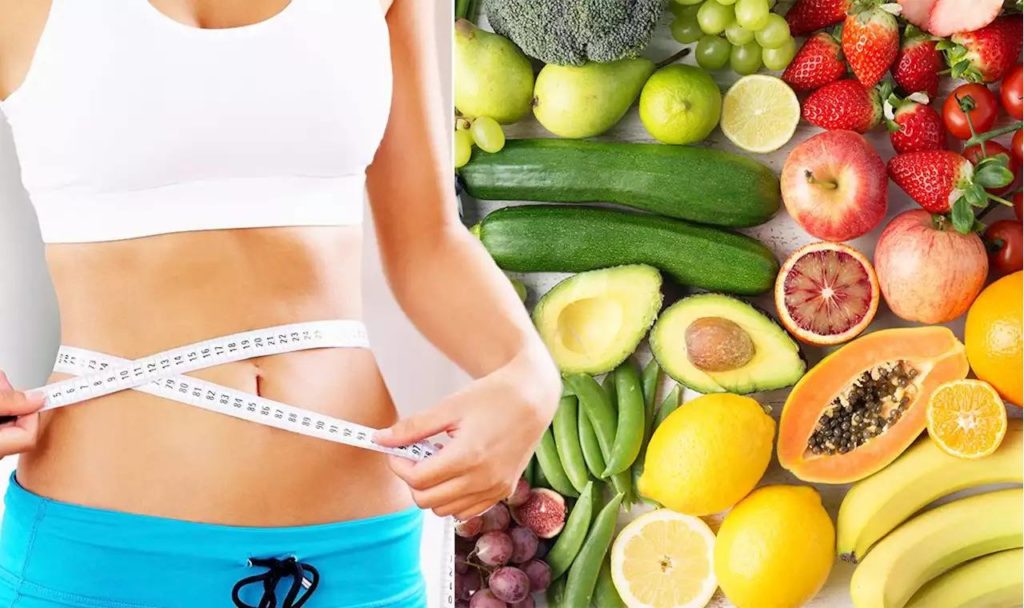Losing weight doesn’t mean you have to follow extreme diets or starve yourself. The key to sustainable weight loss is healthy eating habits that support your body’s needs while promoting fat loss.

In this article, we’ll cover the best healthy eating tips to help you lose weight effectively and keep it off!
1. Focus on Whole, Nutrient-Dense Foods 🍏
Eating whole, unprocessed foods provides your body with the necessary nutrients while keeping your calorie intake in check.
Best Foods for Weight Loss:
- Vegetables (broccoli, spinach, carrots) for fiber and vitamins.
- Lean proteins (chicken, fish, tofu) to keep you full longer.
- Healthy fats (avocados, nuts, olive oil) to support metabolism.
- Whole grains (quinoa, brown rice, oats) for sustained energy.
By prioritizing nutrient-dense foods, you’ll naturally consume fewer empty calories and feel more satisfied.
2. Control Your Portion Sizes 🍽️
Overeating even healthy foods can hinder weight loss. Learning proper portion control is essential.
Tips to Manage Portions:
✅ Use smaller plates to reduce serving sizes. ✅ Measure portions with cups, spoons, or food scales. ✅ Eat slowly and stop when you feel 80% full. ✅ Avoid eating straight from large containers.
3. Reduce Sugar and Refined Carbs ❌
Excess sugar and refined carbs contribute to weight gain by spiking blood sugar levels and increasing hunger.
Foods to Limit:
❌ Sugary drinks (soda, fruit juices, sweetened coffee) ❌ Processed snacks (chips, cookies, candy) ❌ White bread, pasta, and pastries
Instead, opt for natural sweeteners like honey or stevia and choose whole-grain alternatives.
4. Stay Hydrated 💧
Drinking enough water is crucial for weight loss and overall health.
Why Water Helps with Weight Loss?
💦 Reduces hunger and prevents overeating. 💦 Boosts metabolism and fat burning. 💦 Helps digestion and prevents bloating.
Aim for at least 8-10 glasses of water daily and consider drinking water before meals to help with portion control.
5. Plan Your Meals in Advance 🥗
Meal planning prevents unhealthy eating choices and ensures you stay on track.
Meal Prep Tips:
✔️ Cook healthy meals in batches for the week. ✔️ Pack healthy snacks (nuts, fruits, yogurt) to avoid junk food. ✔️ Stick to a grocery list to avoid impulse buying. ✔️ Prepare balanced meals with protein, fiber, and healthy fats.
6. Eat More Protein for Fat Loss 🍗
Protein is essential for muscle maintenance and fat loss.
Protein Sources for Weight Loss:
- Chicken breast
- Eggs
- Greek yogurt
- Fish (salmon, tuna)
- Plant-based proteins (lentils, tofu, chickpeas)
High-protein meals keep you fuller for longer, reducing cravings and overeating.
7. Avoid Late-Night Snacking 🌙
Late-night eating often leads to unnecessary calorie intake, especially from unhealthy snacks.
Tips to Stop Late-Night Snacking:
🚫 Close the kitchen after dinner. 🚫 Brush your teeth early to discourage eating. 🚫 Keep junk food out of sight. 🚫 Drink herbal tea or water if you feel hungry.
8. Get Enough Sleep 😴
Lack of sleep can lead to weight gain by increasing hunger hormones like ghrelin and reducing metabolism.
How to Improve Sleep for Weight Loss:
🌙 Stick to a consistent sleep schedule. 🌙 Avoid screens before bedtime. 🌙 Create a relaxing bedtime routine. 🌙 Ensure your room is cool and dark.
Aim for 7-9 hours of quality sleep per night to support your weight loss journey.
Healthy eating for weight loss is about making smart choices and developing sustainable habits. By focusing on whole foods, controlling portions, reducing sugar, staying hydrated, and getting enough sleep, you can achieve and maintain your ideal weight naturally.
Start implementing these healthy eating tips today and take control of your weight loss journey!
